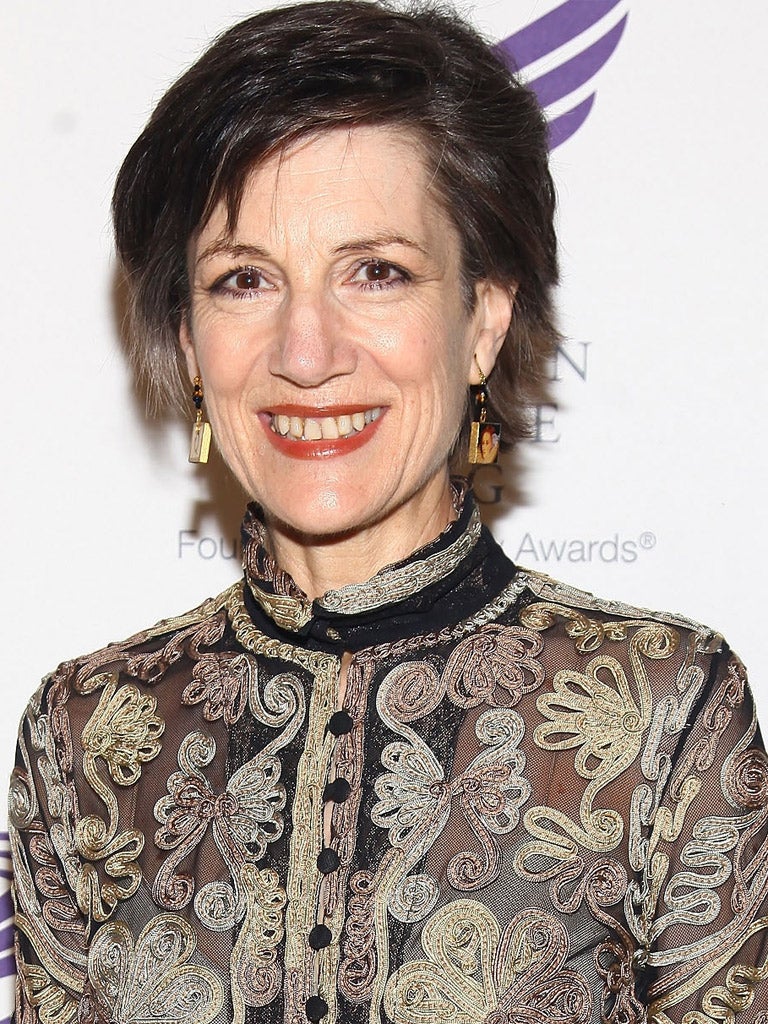Jessica Duchen: How I put the tale of music in a Nazi camp on the stage
The Independent's writer on her play about the Messiaen Quartet

Your support helps us to tell the story
From reproductive rights to climate change to Big Tech, The Independent is on the ground when the story is developing. Whether it's investigating the financials of Elon Musk's pro-Trump PAC or producing our latest documentary, 'The A Word', which shines a light on the American women fighting for reproductive rights, we know how important it is to parse out the facts from the messaging.
At such a critical moment in US history, we need reporters on the ground. Your donation allows us to keep sending journalists to speak to both sides of the story.
The Independent is trusted by Americans across the entire political spectrum. And unlike many other quality news outlets, we choose not to lock Americans out of our reporting and analysis with paywalls. We believe quality journalism should be available to everyone, paid for by those who can afford it.
Your support makes all the difference.I still can't believe this, but my play A Walk Through the End of Time is being performed at the Orange Tree Theatre in Richmond, starring Henry Goodman and Harriet Walter. An estranged couple meet for the first time in years to attend Olivier Messiaen's Quartet for the End of Time. Discussing the personalities behind the music, they are really discussing themselves. It sounds simple, but it is the tip of a rather weirdly shaped iceberg.
In 2007 I had a call from the violinist Philippe Graffin, artistic director of the Consonances festival in St Nazaire, France. Messiaen's centenary was approaching and meanwhile St Nazaire was opening a new performance space for theatre and music – an arts centre converted from an indestructible former Nazi submarine base. Philippe and colleagues would perform Messiaen's Quartet for the End of Time there; he wanted me to write a play that would introduce it.
The venue suited our topic. In 1940, Messiaen, then 32 and serving in the French army, was taken prisoner and transferred to Stalag VIII-A, near Görlitz in Silesia. His fellow prisoners included a violinist, a cellist, and a remarkable clarinettist, Henri Akoka – a Jewish Algerian Communist. For this team Messiaen created the Quartet for the End of Time and in January 1941 they premiered it in freezing conditions for an audience of inmates and their captors.
Messiaen, a devout Catholic, judged it the will of God that they were prisoners. Akoka, though, continually tried to escape. Each pursued freedom according to his belief. Messiaen found his in music – the Quartet. Akoka made a dramatic break for liberty by leaping from the roof of a moving train. This odd couple among musicians remained firm friends all their lives. They got along, Messiaen would say, because they both believed; it didn't matter what they believed in. Messiaen believed in God. Akoka believed in Man.
Their friendship seemed perfect for dramatisation. Snag: we needed a leading role for the great French actress Marie-Christine Barrault – and there were no women in Stalag VIII-A. The drama therefore had to be distanced from the history.
We in Britain often misunderstand the French experience of the war years. Britain was not occupied; France was, and its scars start to throb if you so much as brush against them. In my first draft, our actress was an avenging angel type, investigating the reality versus the myth of Messiaen's Quartet. Soon after his release, the composer won a teaching post at the Paris Conservatoire. It had some vacancies, having been forced to fire its Jewish professors. A passing reference to this provoked an outcry from the committee that had to approve my script. I had to start again.
Instead, our heroine is the daughter of a French soldier who had been imprisoned with Messiaen. Her ex-husband is a scientist yet holds a strong religious faith. Her pragmatism mirrors Akoka; his mysticism mirrors Messiaen. Can they resolve their differences as time begins to run out?
A play is a living entity; creating it can feel like trying to pack a furious cat into a carry-cage and sometimes you end up scratched. But maybe I did something right, because St Nazaire's mayor gave me a medal. The ultimate test belongs to the audience at the International Wimbledon Music Festival, which is presenting the play on a Sunday afternoon and the Messiaen Quartet on the Monday evening. Ultimately, if those attending both find that the play gives them extra insight into the music, then it's all worthwhile.
'A Walk Through the End of Time', Orange Tree Theatre, Richmond-upon-Thames (020 8940 3633) 18 November 2.30pm. The IWMF runs 10-25 November (wimbledonmusicfestival.co.uk)
Join our commenting forum
Join thought-provoking conversations, follow other Independent readers and see their replies
Comments